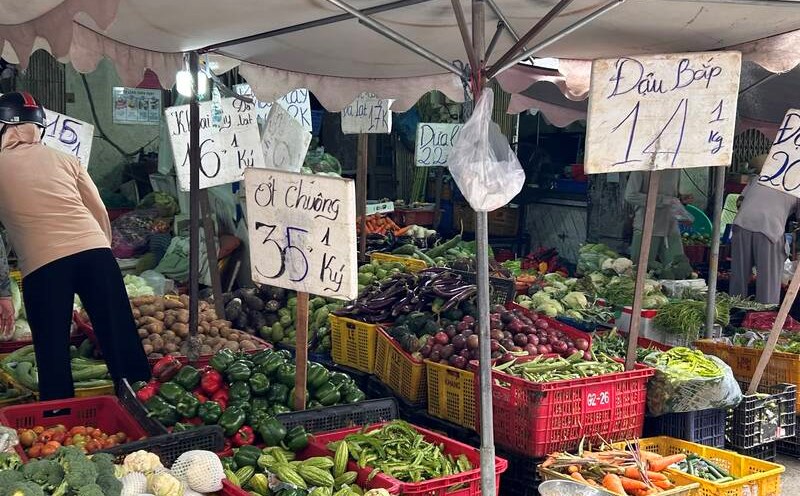This information was shared by Mr. Ngo Hong Y - Deputy Head of the Department of Trade Management (Department of Industry and Trade of Ho Chi Minh City) at the press conference on the afternoon of November 20.
According to Mr. Ngo Hong Y, the demand for vegetables, tubers and fruits in Ho Chi Minh City often increases at the end of the year, serving consumption during Tet and according to the crop cycle. Currently, the city's main supply comes from Lam Dong, the Western and Southeastern provinces.
Of which, Lam Dong accounts for about 60% - 70% of the output of vegetables, tubers, moderate fruits and safe vegetables, becoming an important link in the supply chain of Ho Chi Minh City.
The Mekong Delta provinces mainly provide short-term vegetables, tropical fruits and daily fruits (accounting for 20% - 30%), while supplementary sources from the Southeast, Central Highlands and a part of the import account for about 10% - 20%.
Through monitoring at 3 wholesale markets, the amount of agricultural products supplied to the Ho Chi Minh City market reached an average of 6,500-4.500 tons/day, of which vegetables maintained 3,500 - 3,900 tons/day.
"The supply of goods at wholesale markets and distribution systems is still guaranteed, but some types from Lam Dong and the Western provinces have decreased due to unfavorable weather" - Mr. Ngo Hong Y said.
Recently, prolonged heavy rain, landslides and flooding in large vegetable growing areas have directly affected output, causing retail prices of leafy vegetables, lettuce, cabbage, tomatoes, cucumbers, etc. to increase locally by 10% - 30% at some traditional markets.
In this situation, the Department of Industry and Trade of Ho Chi Minh City has implemented many solutions to stabilize supply and prices.
Closely monitor market developments, coordinate alternative goods sources; coordinate with Lam Dong and the Western provinces in overcoming the consequences of natural disasters.
Support the distribution system, major suppliers to search, diversify supply, increase imports of goods from less affected areas such as Dong Nai to compensate for the shortage.
Encourage the import of additional vegetables that can be preserved for a long time from reputable sources to ensure supply to the people.
Continue to implement the Market Stabilization Program. At the same time, direct the Market Management Department to strengthen supervision of listed prices, especially at wholesale markets, and strictly handle unreasonable price increases that take advantage of natural disasters.
Mr. Ngo Hong Y emphasized: "Although the supply is still basically guaranteed, people should monitor prices and shop reasonably, avoiding the impact of local fluctuations due to the weather".











